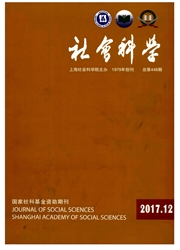

 中文摘要:
中文摘要:
除了传统研究所关注的实体经济因素外,金融因素特别是货币发行国金融市场的发展水平对于一国货币的国际化与国际地位也会产生重要的影响。本文通过对5种世界主要货币的国际地位进行双向固定效应面板数据模型的实证分析,发现:货币发行国股票市场、债券市场发展与金融深化,对于其货币国际地位都具有显著为正的影响。此外,一国的贸易开放程度、宏观经济稳定程度与经济发展水平的提高,对于本国货币国际地位的提升也具有积极作用。这意味着,为了有效推进人民币的国际化,有必要大力发展中国的金融市场,将实体经济与金融经济两个层面的努力结合起来。
 英文摘要:
英文摘要:
The paper discusses the effects of financial market development on 5 main international currencies' international status using a panel data model with bilateral fixed effects,the results shows that both the developments of stock market and bond market,along with the general financial deepening,all play a significant positive role in the process of currency internationalization.Besides,the increase of trade openness,macroeconomic stability and the GDP per capita also have positive effects on a currency's international status.The policy implication for RMB internationalization is thus that China should promote the developments of its financial markets.
 同期刊论文项目
同期刊论文项目
 同项目期刊论文
同项目期刊论文
 期刊信息
期刊信息
